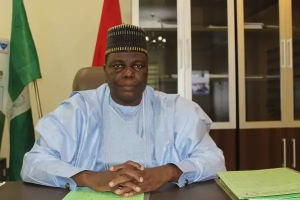Director General, National Biotechnology Research and Development Agency (NABDA), Prof. Mustapha Abdullahi, has urged farmers to embrace biotechnology to boost food production in the country.

Abdullahi made this call on Friday, May 3, 2024, in Abuja at the One-day Biosafety and Biotechnology Sensitisation Workshop for Farmers Associations in Nigeria with the theme “Empowering Biotechnology: Enhancing Agricultural Productivity and Sustainability.”
The director-general said using biosafety and biotechnology seeds to boost food security would improve the plight of farmers across the country.
According to him, the benefits of biotechnology are vast and profound as biotech proffers solutions to some of the most pressing challenges facing the agricultural sector.
“Biotechnology stands as a beacon of hope; it is a transformative force driving agricultural progress across the globe and farmer associations like yours play a pivotal role as the bedrock of our agricultural landscape.”
“This technology will enhance crop yields and improve nutritional content against pests, diseases and adverse environmental conditions; biotechnology offers a spectrum of opportunities to propel our agricultural productivity to new heights.”
Abdullahi said biotechnology would foster sustainable agricultural practices, reducing the dependency on harmful chemical inputs and promoting ecological balance.
“With biotechnology, we will not only safeguard the livelihoods of our farmers but also ensure food security for our nation.”
He said that the partnership and collaboration of farmers’ associations would aid the adoption and dissemination of biotechnological innovations.
“Together, we can leverage the tools of science to empower farmers, enhance their productivity, and contribute to the socio-economic development of our nation,” he said.
He urged all farmers to embrace biotechnology as a catalyst for progress and champion its cause within various associations, communities, and at states’ levels.
Dr Bello Abubakar, National President Maize Association of Nigeria (MAAN), said the sensitisation workshop would help farmers to improve on their production and also create wealth for them.
He assured that the maize farmers in the country were already looking forward to planting the Tela maize knowing the benefits of the improved seedlings.
“Majority of our farmers is aware of the new improved seeds; I can say that about 60 per cent to 70 per cent of our farmers have already accepted it and are ready to cultivate it,’’ he said.
Mr Mustapha Bakano, National President of Cassava Growers Association, said they were looking forward to enhancing their capabilities to improve stem production and to produce seeds en masse.
“We are synergising with the government to ensure that these seedlings reach the farmers to boost food security.
“If we are able to focus on this direction, in the next few years we will be looking at integrating cassava flour into wheat and this will help us reduce our deficit in importation of wheat,’’ he said.
The aim of the workshop was to enhance farmers’ understanding of the benefits associated with agricultural biotechnological interventions.
It is also aimed at empowering farmers with knowledge and skills to make informed decisions regarding the adoption of biotechnological practices.
By Bukola Adewumi
